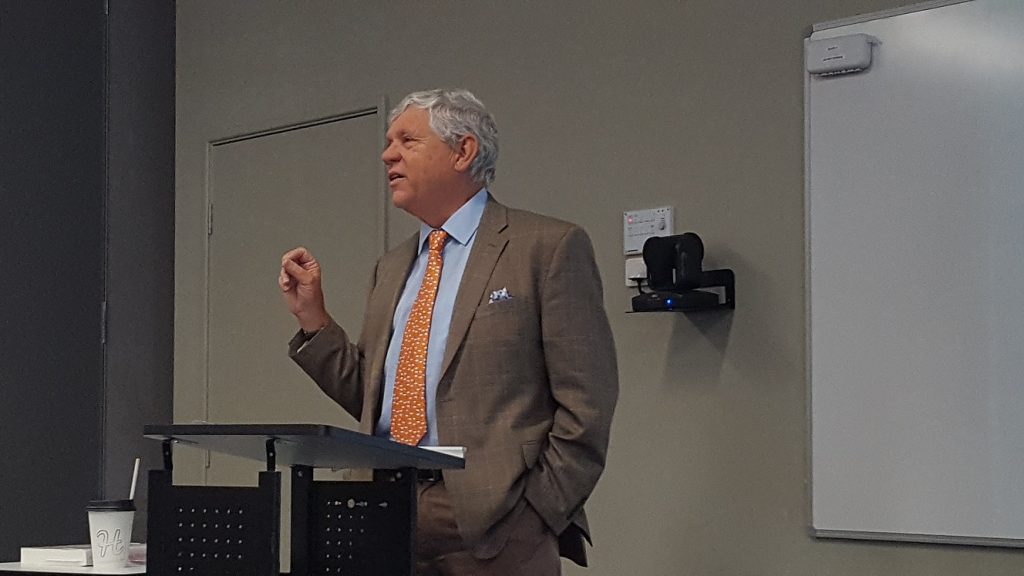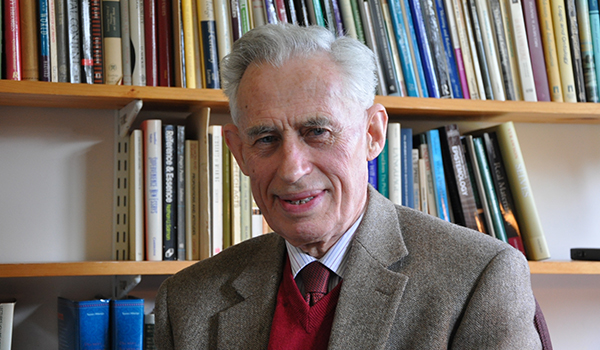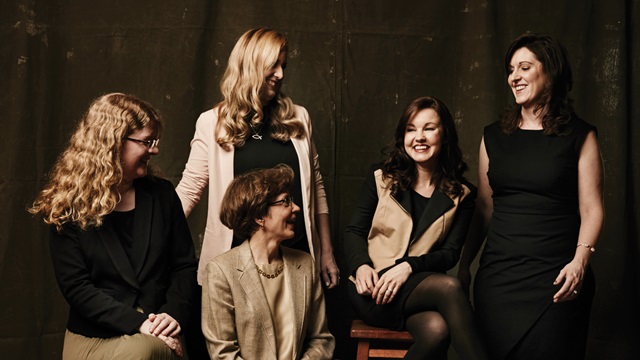 On August 2, 2019 Ben Witherington III delivered the Annual Vose Lecture on the theme, “A Singular Jesus in a Pluralistic Culture.” In essence, the lecture was an applied New Testament apologetics within a Wesleyan Evangelical framework of thought. Witherington explored Jesus’ self-understanding as reported in the gospels, assessing the historical worth of this portrayal, and arguing that an incarnational understanding of Jesus is a necessary deduction from the New Testament data, and the foundation of Christian witness in a pluralistic context.
On August 2, 2019 Ben Witherington III delivered the Annual Vose Lecture on the theme, “A Singular Jesus in a Pluralistic Culture.” In essence, the lecture was an applied New Testament apologetics within a Wesleyan Evangelical framework of thought. Witherington explored Jesus’ self-understanding as reported in the gospels, assessing the historical worth of this portrayal, and arguing that an incarnational understanding of Jesus is a necessary deduction from the New Testament data, and the foundation of Christian witness in a pluralistic context.
Witherington began by identifying two well-known key phrases in the ministry of the historical Jesus: his use of the title “Son of Man,” and his use of the imagery and language of “the kingdom of God.” He argued that these two concepts appear together in only one Old Testament text: Daniel 7:13-14, with the additional note that in vv. 25-27 the kingdom is given to the saints. Witherington argued that Jesus believed that he was both divine and human, and that he used the Son of Man title to indicate this. The title encompasses the fullness of Jesus’ person. As many other scholars have also argued, Jesus selected this relatively obscure title to set himself forth on his own terms, and in so doing, avoided other terms loaded with contemporary pre-conceptions and significance which were antithetical to the message he sought to communicate.
Turning to the issue of pluralism, Witherington insists that the Christian claim of Jesus’ uniqueness and supremacy is not about the wisdom or value of other cultures or their beliefs, but about the central question and reality of salvation. Jesus’ claim was unique, as was his death and resurrection, and his relationship with the Father. He was also sinless although Witherington, applying his Wesleyan framework to Christology, argues that Jesus could have sinned but did not. Jesus’ incarnation was a genuine embrace of a fully human life with all its limitations and possibilities. He was certainly tempted to use his divine powers (e.g. to turn stones into bread) but did not, for he did not access the inherent divinity of his person. His life was one of divine self-limitation without any aspect of loss of the divine being.
This was much more a popular than an academic lecture and much appreciated, especially by the ordinary church-goers who made up a sizable chunk of the audience. Witherington presented a thoroughly Evangelical account of apologetics grounded in substantial New Testament theology. The lecture both supported and called for a robust confidence in the gospel on the part of everyday believers as they encounter the challenge to faith in Jesus Christ in a culture that espouses the equivalence of just about any and all worldviews, spiritualities, and perspectives.
On Saturday morning following the public lecture, Ben Witherington addressed a second more academic lecture to another audience on the theme of “Paul, Covenantal Theology, and the Law.” In this thoughtful and thought-provoking lecture Witherington insisted that the Law must be understood within its Old Testament / Ancient Near Eastern context, that the Mosaic covenant was a covenant of both grace and law—and indeed all the biblical covenants had this feature. The New Covenant was not a renewal of the Old Covenant, i.e. as one covenant with diverse administrations, but was an entirely new covenant.
Witherington explored in some detail key New Testament texts such as 2 Corinthians 3, Galatians 4:1-8, Philippians 3: 4-8, before turning his attention especially to Romans (something we asked him to do). There he explored Paul’s thought in Romans 10; 7:7-25; and 8:1-4. He argues that Paul considered that the Law was a temporary arrangement for Israel (the paidagōgos or “child-minder”) until they should come “to maturity.” The believer has been set free from sin and death, and so also from the Law. Thus they are not under the Law of Moses, but under the Law of Christ.
Both lectures were followed by a lively Question & Answer session, and by ongoing conversation after the formalities were concluded. It was a privilege to have such an accomplished New Testament exegete and commentator visit Vose Seminary and bring the wealth of his learning to our community. Further, Ben Witherington’s Wesleyan commitments also brought a fresh flavour to the lectures; it is not that often that this perspective has been so competently and enthusiastically presented and defended (in my experience at least) in Perth in recent years. Despite his great learning, massive literary output, and global stature, Ben wore his learning lightly. I am sure that those who attended the lectures were certainly enriched by what he presented. This was the third Annual Vose Lecture, and a very fine addition to this growing heritage.


